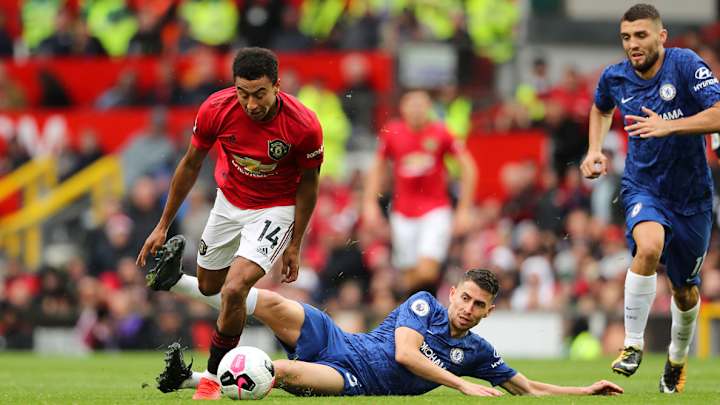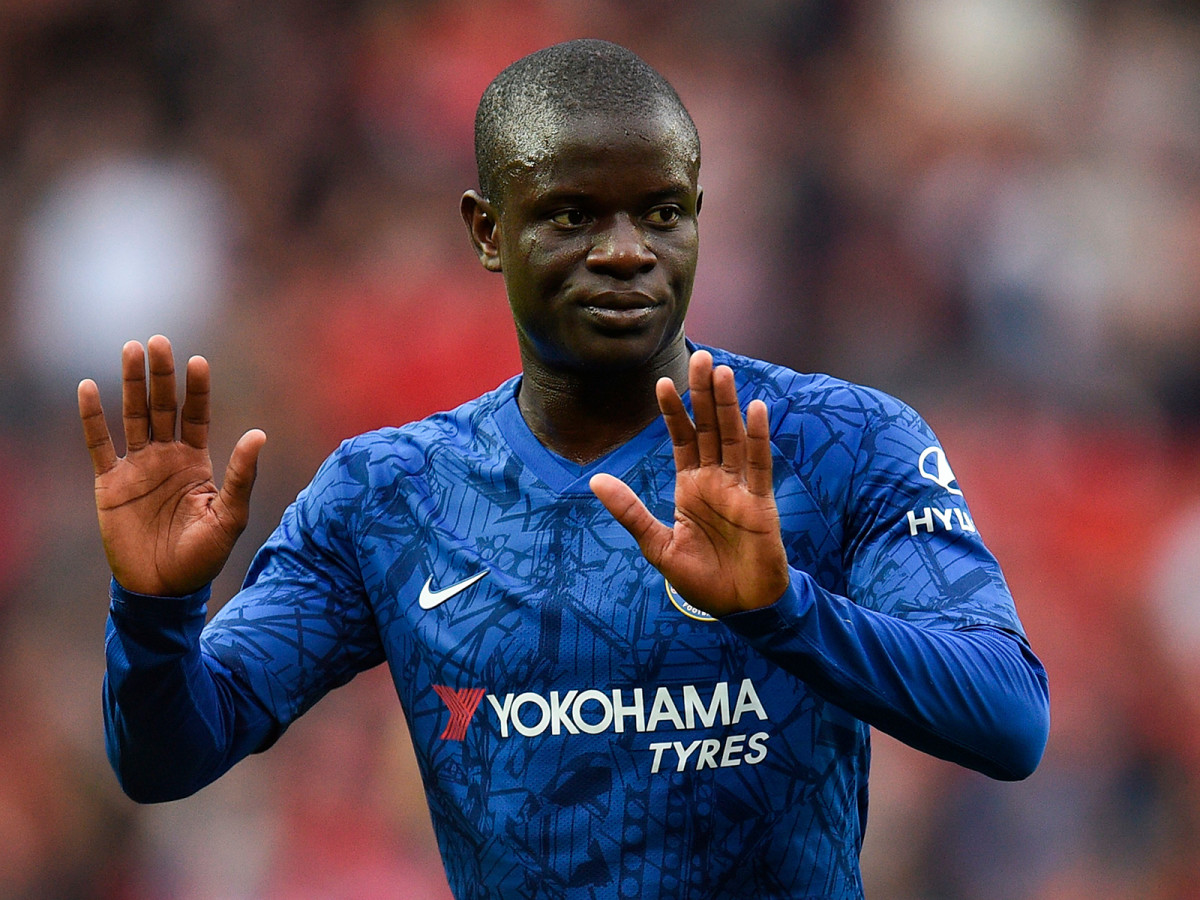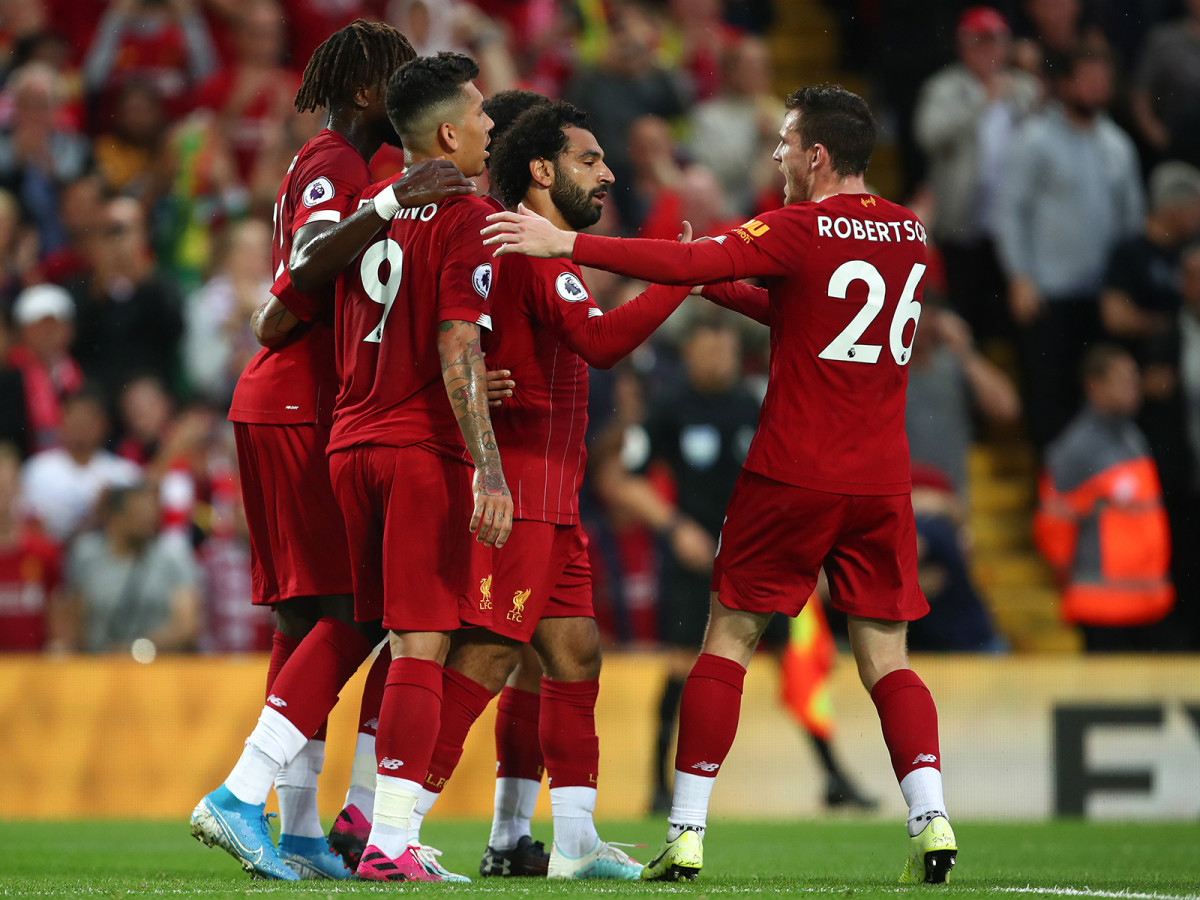Chelsea's Weakness Defending Counter an Early Red Flag for Lampard's Blues

Chelsea, by a general consensus, looked pretty good on the ball for at least the first hour of Sunday’s 4-0, season-opening defeat to Manchester United, but got picked off four times on the counterattack. That makes it deeply unfortunate that its next game, Wednesday’s UEFA Super Cup that pits the reigning Champions League and Europa League winners vs. one another in Istanbul, is against Liverpool, which is probably the best side in the world on the counter. Unless there is a rapid improvement, Frank Lampard’s second competitive game as Chelsea manager could feature an even uglier scoreline than the first.
There is one major piece of positive news for Chelsea, which is that N’Golo Kante seems to have emerged unscathed through his 17-minute substitute appearance Sunday and should be fit to start. Given he is arguably the best Pac-Man-style midfielder there is, that could be a very straightforward solution.
But to think what happened at Old Trafford was the result of the absence of one player (albeit one who plays with such energy and positional awareness that he often appears as two) would be to downplay just how bad Chelsea was at that one aspect of trying to stop United. There was much that was good about the performance. A lot of the passing and interplay was slick. Lampard was right afterward when he pointed out that Chelsea on another day would have been 2-1 or 3-1 up at halftime. But the inability to stop the counter was startling. To call it the club's Achilles heel would be a gross understatement.

At the back of midfield, Lampard fielded Jorginho and Mateo Kovacic. Neither is exactly the snapping, snarling British stereotype of the holding midfielder, but Jorginho occupied the role regularly for Napoli, alongside Marek Hamsik and Allan, neither of whom are exactly aggressive tacklers. The difference was that there he was protected by the compactness of the team. There simply wasn’t the space for opponents to surge through as Paul Pogba and Marcus Rashford for United did on Sunday. Even last season, although Maurizio Sarri never got Chelsea playing quite to his template, the shape–and having Kante alongside him–protected Jorginho.
It’s early days. It would be wrong to write Lampard off after one match. As he noted three times in his post-match press conference, he has inherited a difficult set of circumstances, with Eden Hazard gone to Real Madrid and a transfer ban in place. But neither of those difficulties explain why David Luiz was allowed to leave so cheaply to Arsenal when Chelsea has a dearth of senior central defenders. Had he been there rather than Kurt Zouma, who had an unfortunate and clumsy afternoon, United may not have been gifted the early penalty from which it took the lead.
But perhaps that is to place too much on individuals. Zouma, after all, never looked so anxious during his loan at Everton last season. No center back relishes being isolated against a rapid opponent given 40 yards to accelerate through.
Precise figures are difficult to come by, because definitions change over time and from provider to provider, but what is clear is that the number of goals scored on the counterattack has fallen at the highest level over the past decade–perhaps, in the Champions League by as much as half. That is because more effort has been invested into gegenpressing–countering the counter, to stop teams breaking quickly and exploiting a defense that isn’t set. There was very little evidence of Chelsea doing that on Sunday, or even in preseason. That is a major concern, because so much modern football is predicated upon it.

There’s a deeper worry there as well, which is that Lampard as a player was always a very attacking central midfielder. He thrived with a Claude Makelele or a John Obi Mikel alongside and behind him. When asked to play with another box-to-box player in Steven Gerrard for England, they never quite managed to work out a system whereby one sat while the other pushed forward. There are many managers who prioritize aspects of the game quite differently to what they prioritized as players, but those vast open channels at Old Trafford were horribly reminiscent of chaotic England performances with Lampard and Gerrard in tandem.
It’s hard to believe Lampard would be unaware of that, and Kante’s return should bring an instant improvement, but if there are any flaws in terms of compactness or the positioning of the back of midfield, Liverpool is just the team to expose it.
